Introductionary Thesis
- Linux is an affordable, good, stable, reliable and secure Operating System for Desktop and Server applications.
- Linux is well suited for academic as well as for commercial usage.
- Linux is something special, not experienced so far in the big OS space.
- Linux is not thinkable without the Internet.
- Linux is very important to keep the OS market competitive in the future.
- Linux is the only competitor of Microsoft's operating systems, especially Windows NT.
- Linux is a philosophy, but Linux is also a software
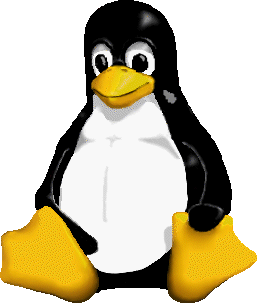
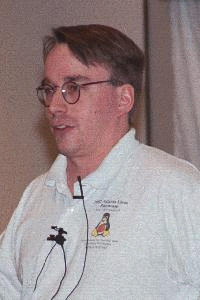
Linux is an Unix-Derivatve
- 1969: Ken Thompson developed UNIX at Bell Labs.
- ~1985: Andrew Tanenbaum developed Minix.
- 1991: Linus Torvalds starts the work on a Minix derivative called "Linux".
- 1991: First stable kernel. Linux spreads in the Internet.
- 1998: Commercial hardware companies Siemens, HP, Compaq, Dell und IBM announce Linux on their plattforms.
- 1999: After SAPs announcement to port SAP R/3 to linux, the following producers of DB/ Applications software are in the linux boat: Oracle,Informix, Sybase, Ingres, SAP, Netscape....plus others.
- Layers model of a Linux H/S - System
- Last kernel release: v2.2.6
- Last development kernel: v2.1.132
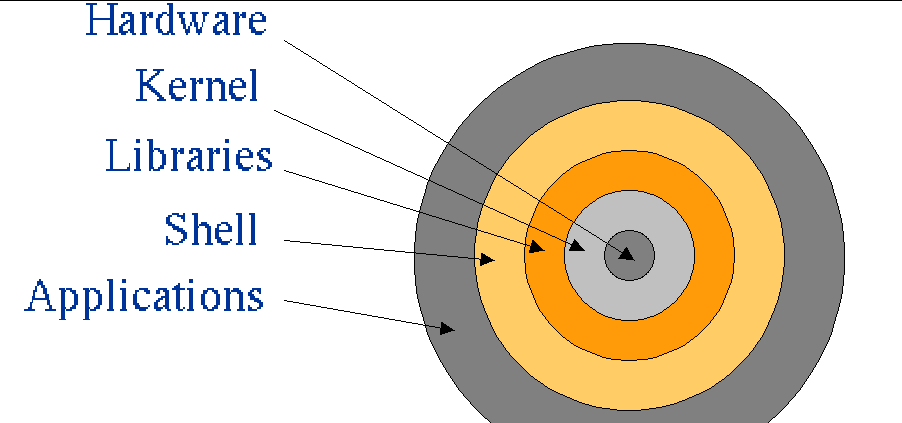
- Current innovation cycle:
- Since 8. January (version 2.2.0) 7 new stable kernel releases
- every 13 days a new kernel release . :-)
GNU = GNU is Not Unix
- Tools available for all major platforms
- Products under GNU Public License (GPL)
- Standadization of Software
- High Reliability
- High Functionality
- GNU Public Licence (GPL):
- Free Availability of Source Code
- Free passing on of the complete Software Package
Statistics
- Worldwide 7.5 to 10 Mio. User
- 27% of all web server running Linux (1. place)
- 37% of all FTP servers running linux (1. place)
- 27% off all News servers running linux (1. place)
- Netspace, Linux Intern., Citroen, Subaru, Deja News, Whataburger, Netscape, Cisco, Sony, Debis, Mercedes Benz AG, Bosch DaimlerChrysler, Boeing, United States Postal Services all run Linux
- Conclusion:
- Linux has a very large private and commercial user base
Source: Linux International
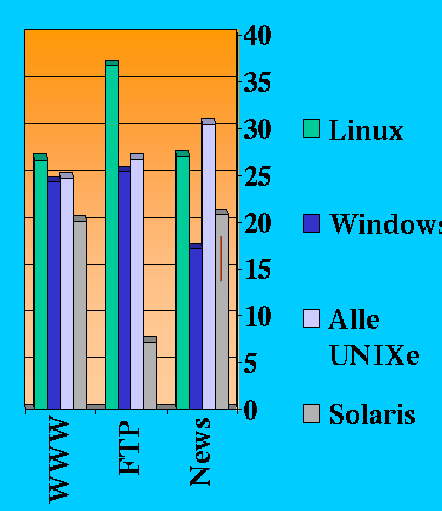
Hardware Platforms
- Processors:
- Intel x86
- DEC Alpha
- MIPS
- PowerPC / PowerMAC
- Sun SPARC / Ultra Sparc
- Motorola m68k
- ARM
- Systems:
- IBM AS/400, RS/6000
- Siemens Celsius, Primergy
- SGI Indy
- Compaq Alpha Server
- NEXT
- 3Com Palm II/III
Business Analysts:
- GartnerGroup 01/99: "The ground swell of interest in Linux [..] is poised to gain momentum if sincere vendor support becomes available"
- GartnerGroup 01/99: "Linux vendor technical support for MSEs will only be adequate for technically knowledgeable IT organizations through 2000 (0.7 probability)."
- IDC 04/99: According to statistics from IDC, about 750,000 servers had Linux installed in 1998, an increase of 212% (NT: 36%)
- IDC 04/99: Over the next five years, Linux will grow faster than all other operating systems combined.
- Dow Jones 04/99 : The market size for Linux-related business will be between $5 billion and $20 billion in 2002.
- DH Brown 04/99: Linux comes up short when compared feature-for-feature with commercial Unix products and Windows NT, but the operating system is great for some tasks.
Development Philosophy
- Release early, release often - L. Torvalds
- Delegate everything you can - L. Torvalds
- Treating the users as co-developers means rapid code improvement and effective debugging.
- Given a large enough beta-tester and co-developer base, almost every problem will be characterized fast and the fix obviously to someone.
- Debugging is parallelizable - Jeff Dutky, Opensource Movement
- KISS - Keep It Small and Simple
- Listen to the users. Sometimes their ideas are better.
- Recognizing good ideas from others is very important.
- The internet is an ideal tool for development of software according to the Bazaar-Model.
- In contrast Microsoft Software is developed according to the Cathedral-Model.
- Linux is developed by the community.
- Anyone making use of the software must agree to give everyone else the rights to use, modify, and redistribute the program´s code or any program derived from it but only if the distribution terms are unchanged.
Distributions
RedHat
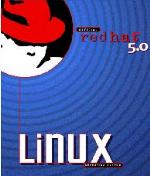
SuSE

Debian

Delix

Caldera
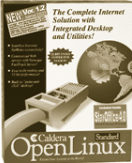
- Example: S.u.S.E.
- Good manual
- Help files and docs on CD
- 60 Days free installation support via Email, Fax and Hotline
- S.u.S.E.-support database on the Internet (free)
- Commercial support service
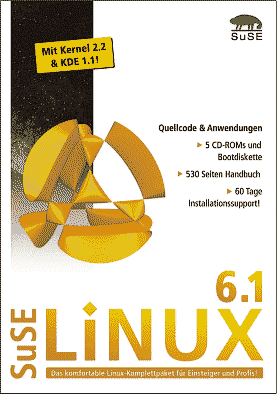
Free Support
- Zero costs (if you have Internet access)
- should be managed by the system administrator
- You have to be active in Newsgroups, Mailing Lists, WWW etc.
- there is no guaranteed servic time ... but a very high probability to get the problem fixed
Technical Support
- Community Help: The Linux Documentation Project maintains dozens of how-to files covering every imaginable subject, including installation, DOS emulation, networking, and using Cyrillic characters.
- Check Out Newsgroups: Check out the wide variety of Linux-based Usenet newsgroups, including comp.os.linux.misc, comp.os.linux.setup, comp.os.linux.questions, and alt.os.linux.
- Other Linux Users: Linux user groups have cropped up around the globe
- Shell Out Cash: If your company needs Linux support--even around the clock--it's available. Both Red Hat and Caldera offer full-time, phone-based tech support help, either on a per-incident or annual contract basis. In addition, there is now support from software and hardware vendors like Siemens, IBM, Compaq.....
- Linux "common channels" support using specialized news groups and mailing lists has a great value.
- Direct contact with the main developers
- Direct contact with users with the same problem
- Fast response and advice ( ~ 1 hour response time is common)
- An alternative to "commercial support" but without guarantees
- Hardware and Software support directly from vendors recommended
- By mission critical application 24/7 support contracts recommended
Linux as Desktop Maschine
- Office suits available (Applixware, StarOffice, Wordperfect)
- Easy to use and:
- Compatibility with MS-Office (Word, PPT)
- Smart text editing and formatting available: TeX, LaTeX
- Not easy to use, but very widespread use from Scientific Users
- well suited for big documents and books
- Graphical user interface X-Windows
- Desktops KDE and Gnome
- Applications for most important tasks: Office applications, image processing, scientific/technical, web, audio, internet tools, software development, rendering,...
- SAP R/3 GUI available since 12/99
- Although many applications are available, Linux needs a better and easier installation procedures and more applications for the normal user.
- The upcoming OpenLinux 2.2, Redhat 6.0 and SuSE 6.1 seem to be going into this direction
- Linux on the Desktop only for advanced users.
- L. Torvalds: "... The desktop market is the hardest by far".
Linux as Server: Intranet + Internet
- Samba (in Windows-Networks)
- NFS (Network File System)
- Print-Server
- Email-Server (with IMAP or POP3)
- Central Backup-Server
- Firewall between LAN and Internet
- FTP (File Transfer Protocol)
- WWW-Servers with Apache (HTTP)
- News-Server
- Email-Server
- Name-Server (DNS)
- Linux is great as operating system in LANs and in the Internet
High Performance Linux Cluster
- Linux Clusters in the TOP500, e.g. Avalon
- hpcLine of Siemens (Aachen, Kaiserlautern and Paderborn)
- Do it yourself Supercomputers (half the performance, 10% of the price)
- "Supercomputing for the masses" (Robin Miller in TechSightings)